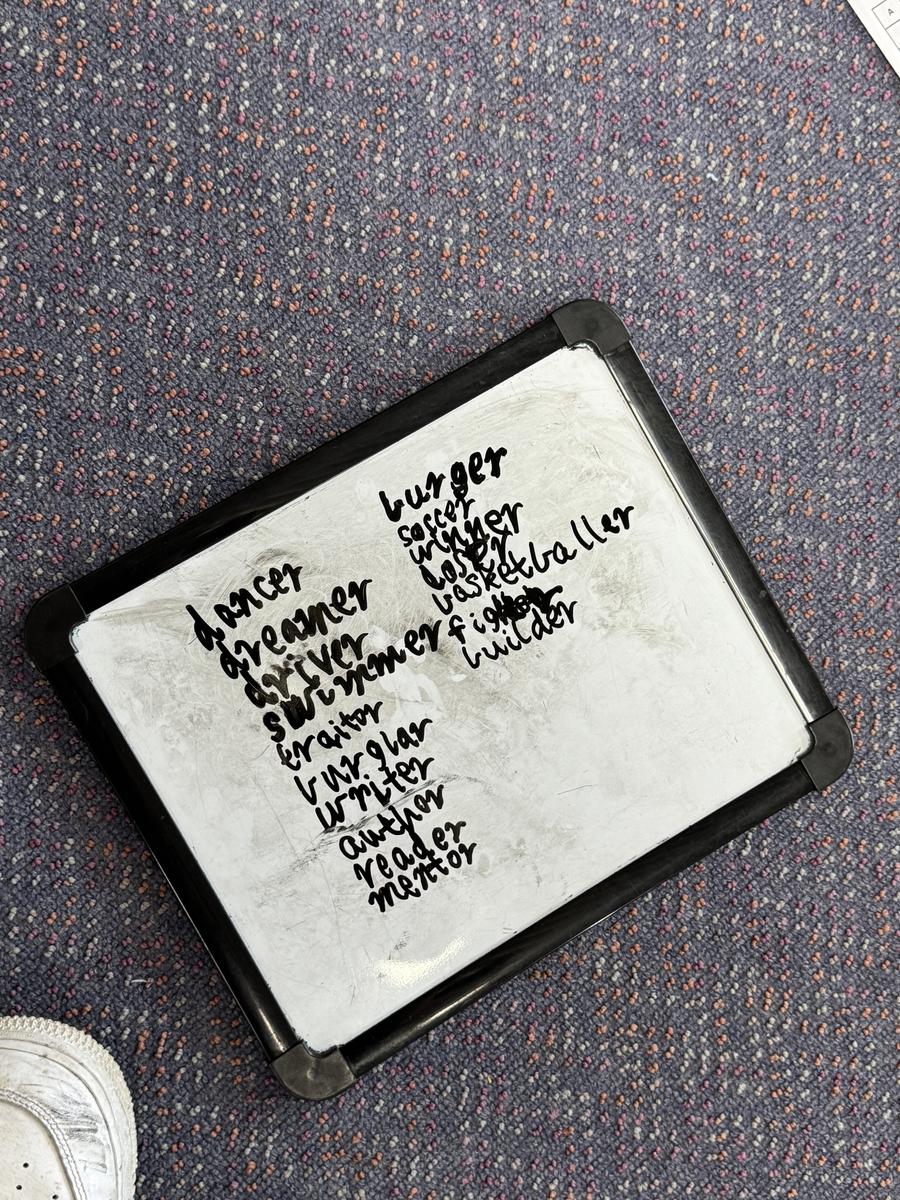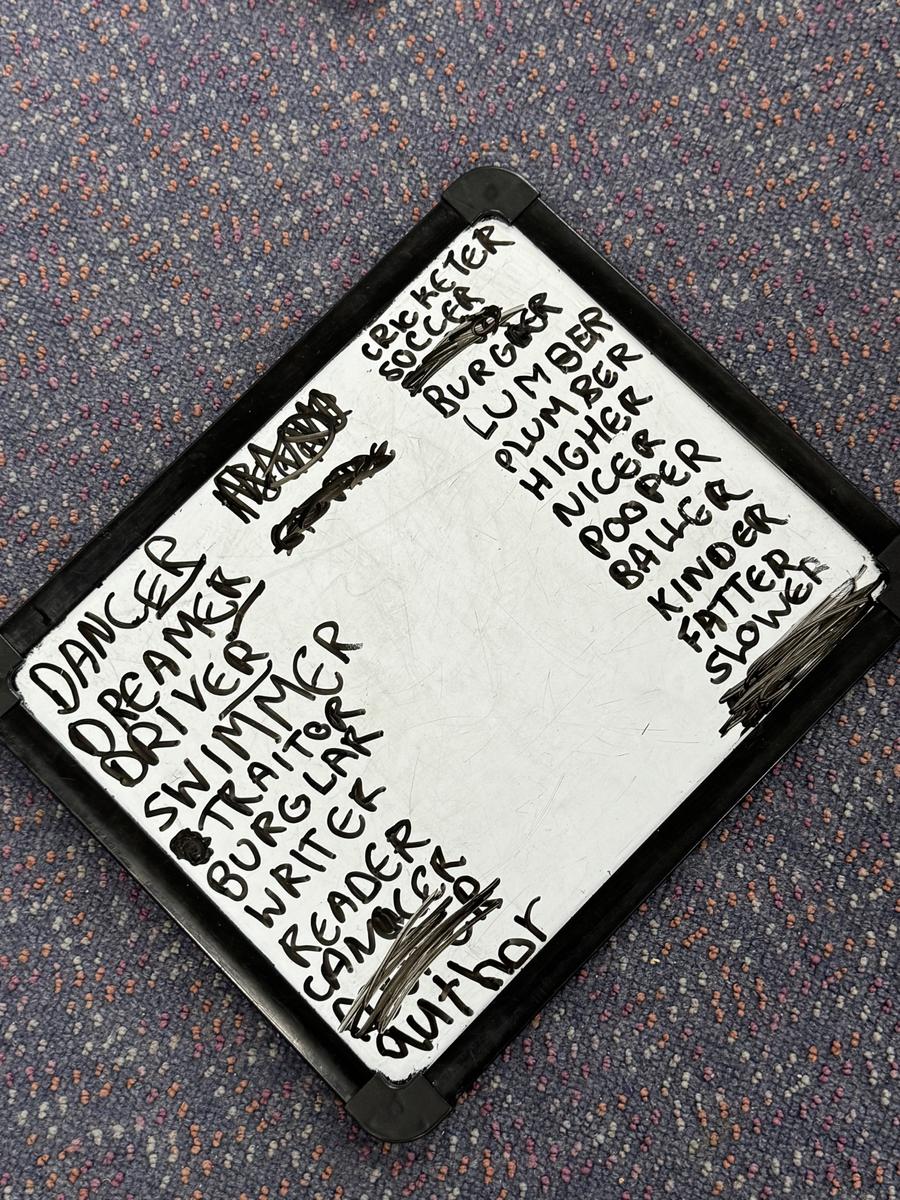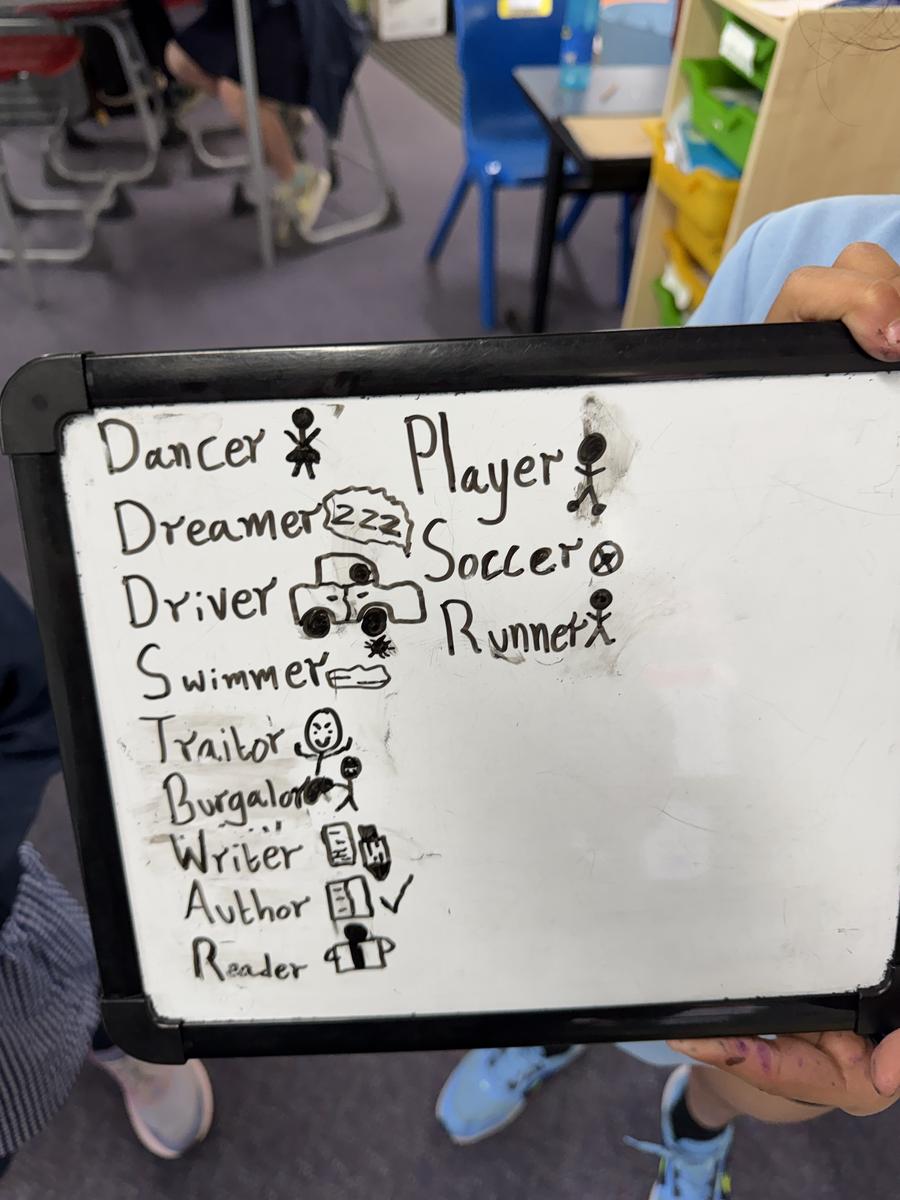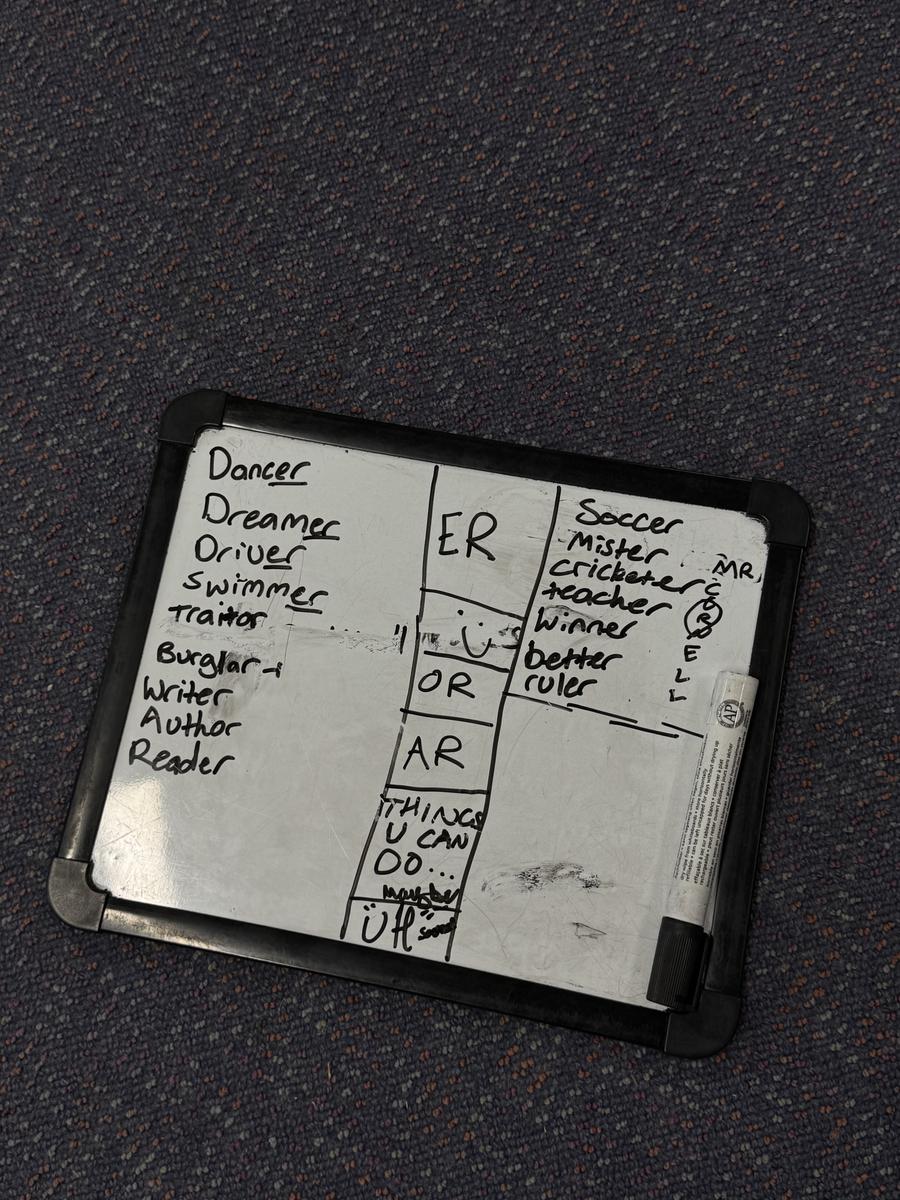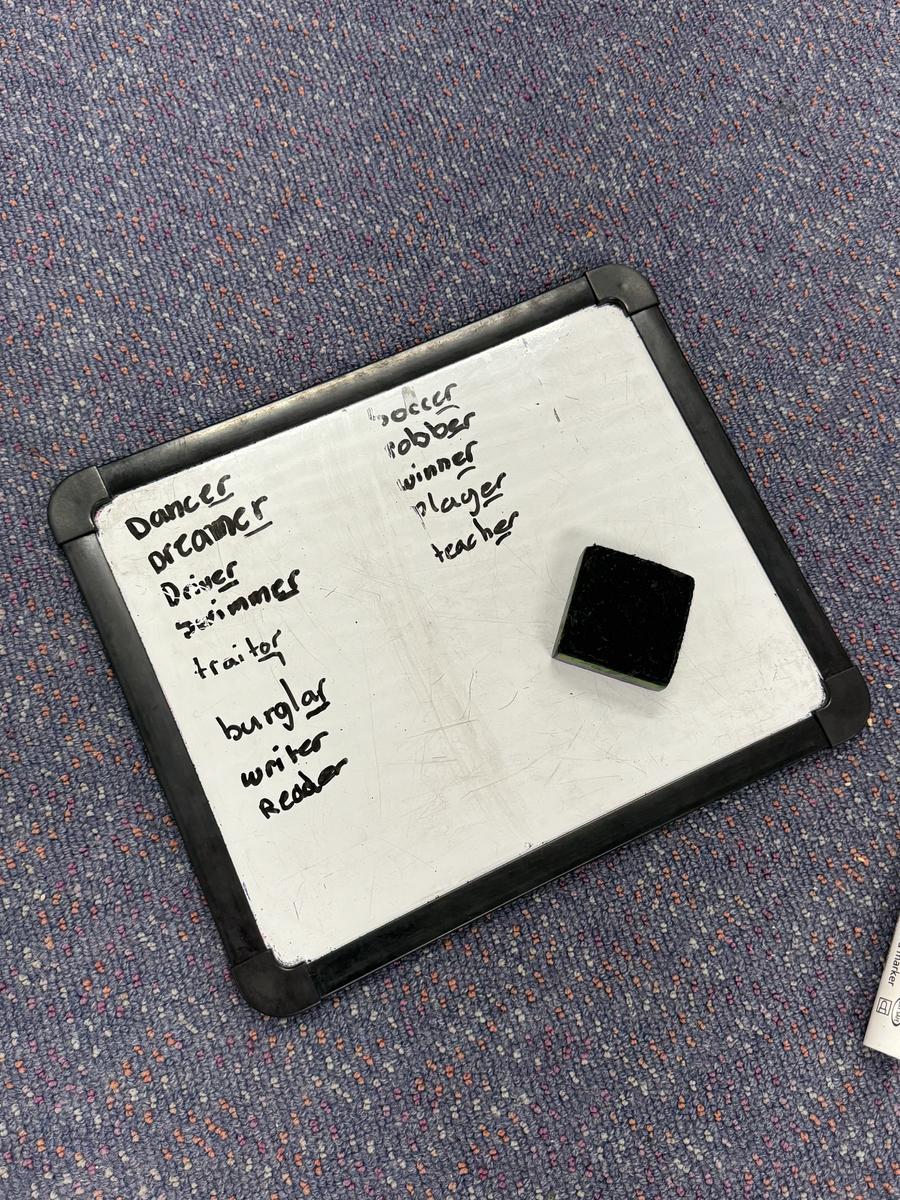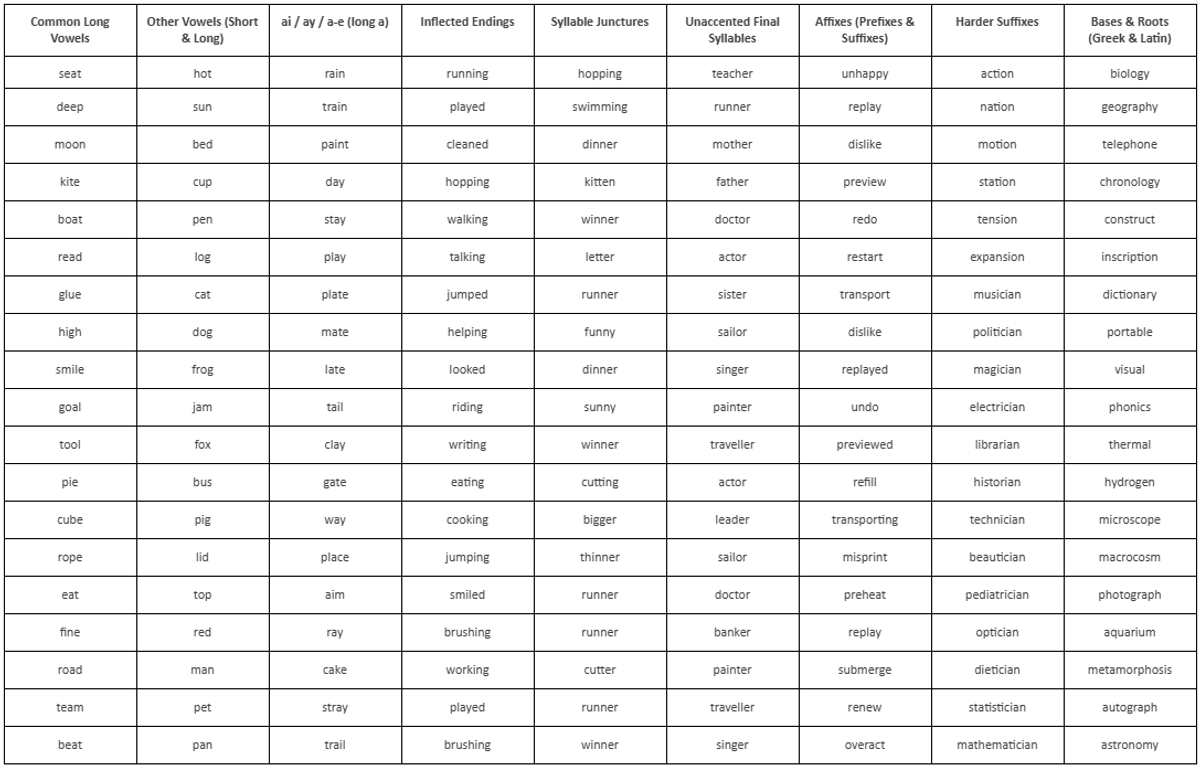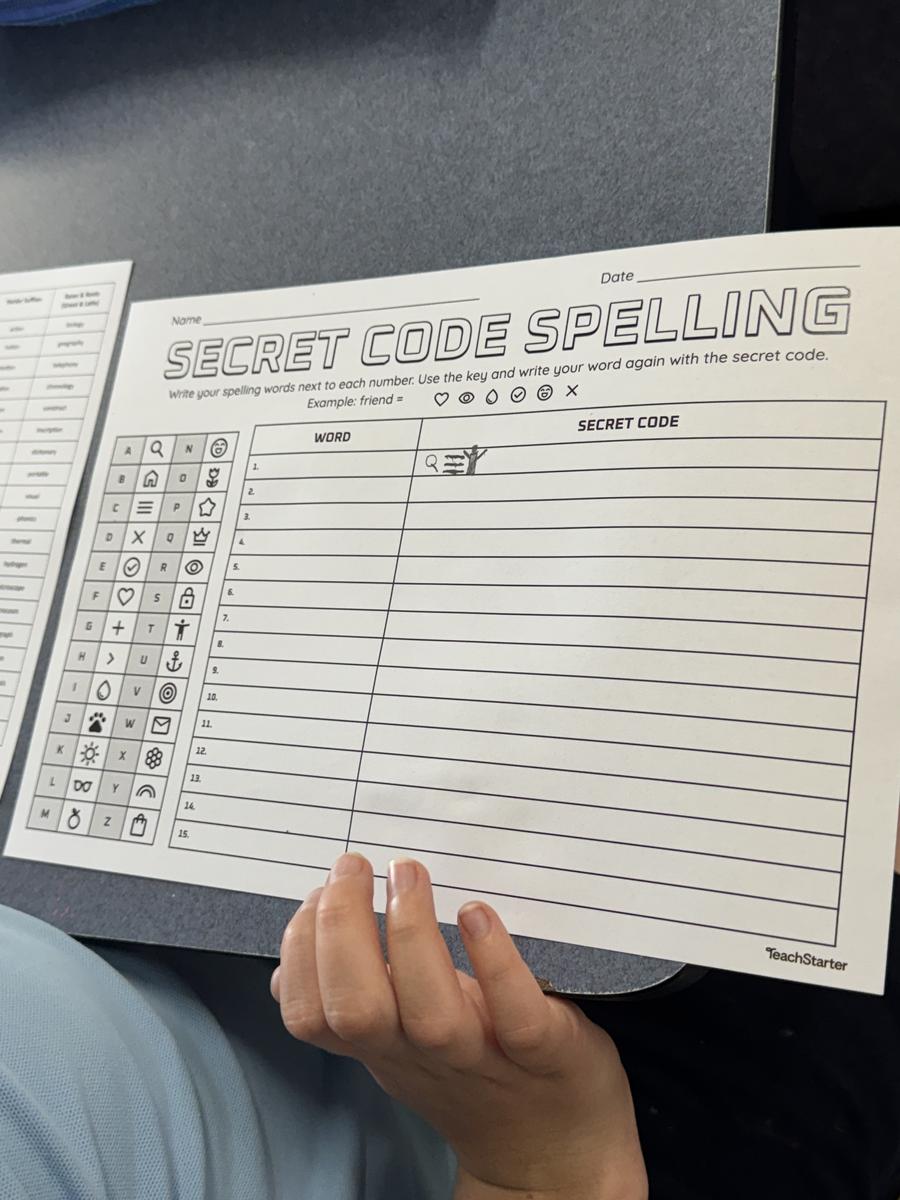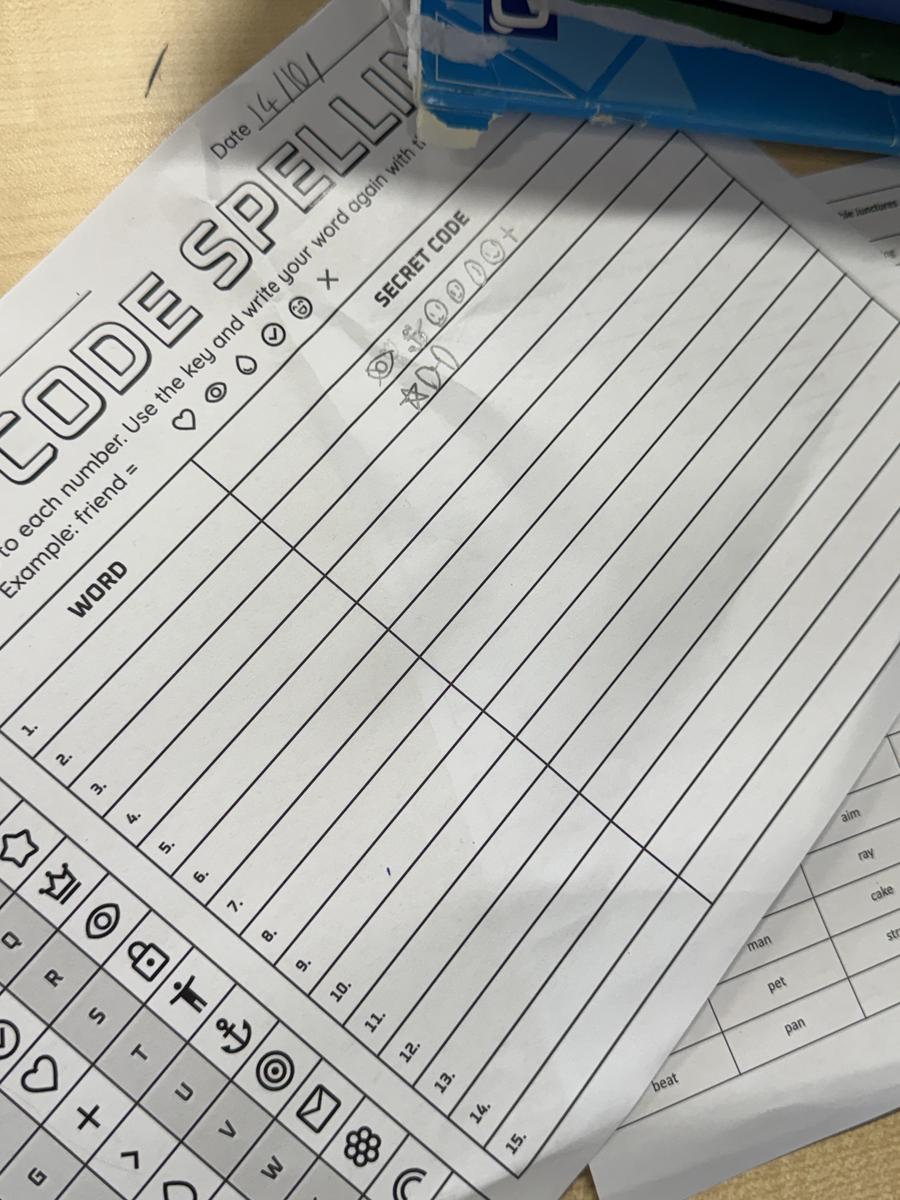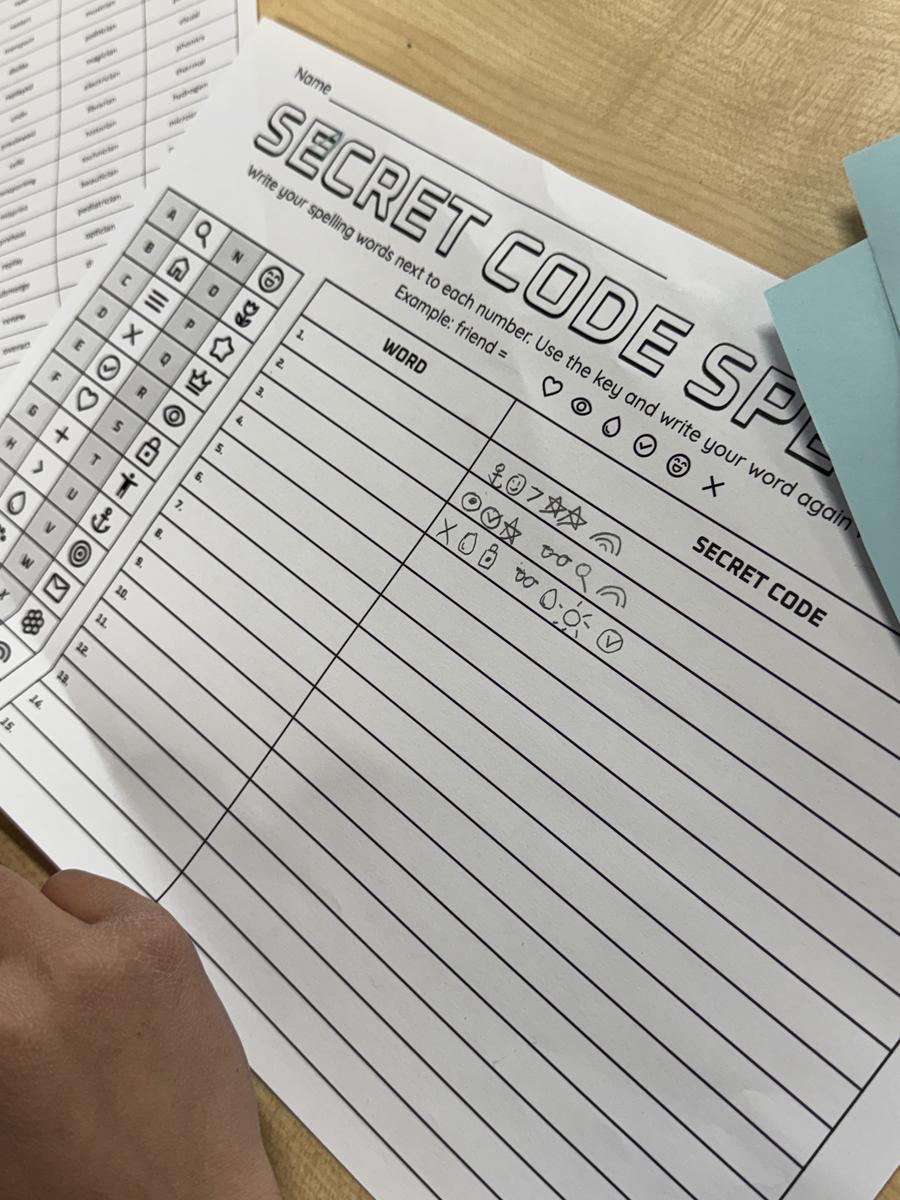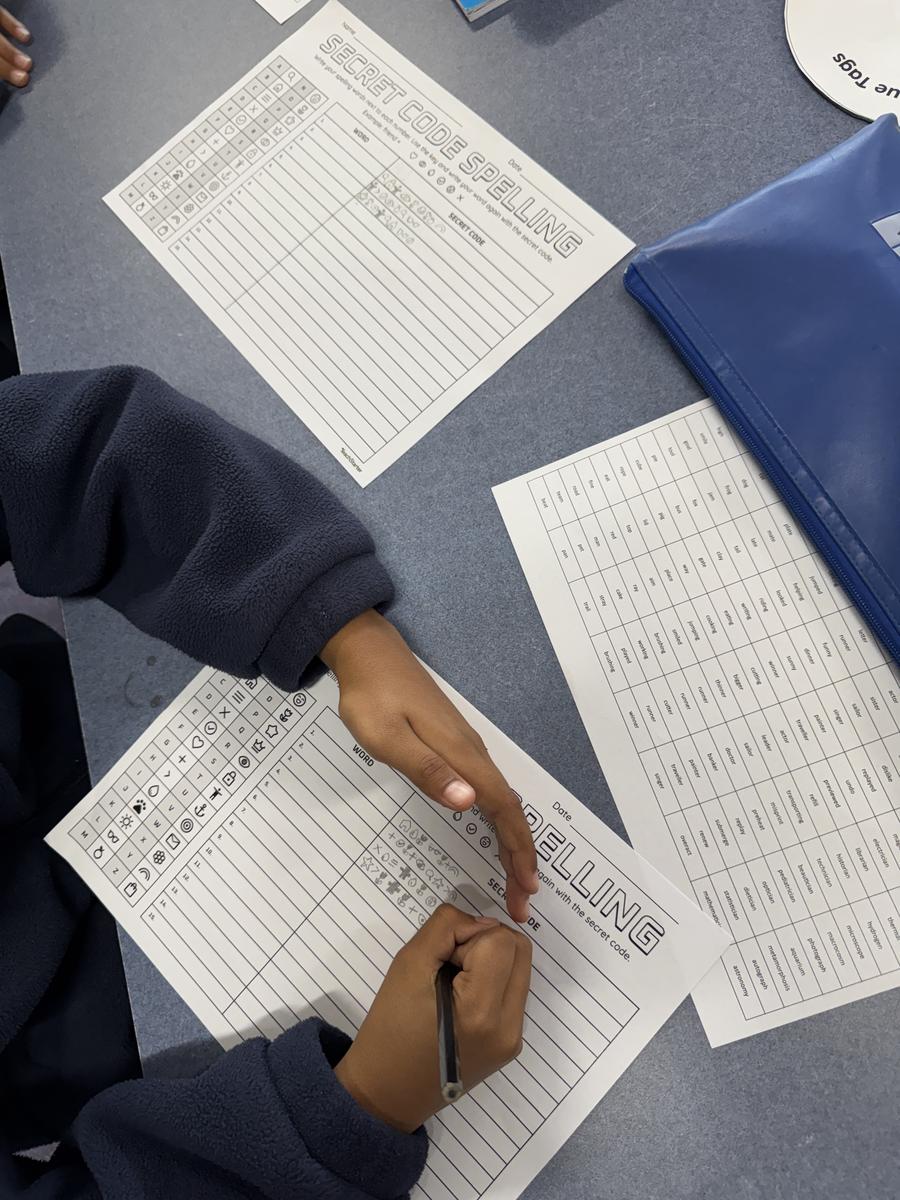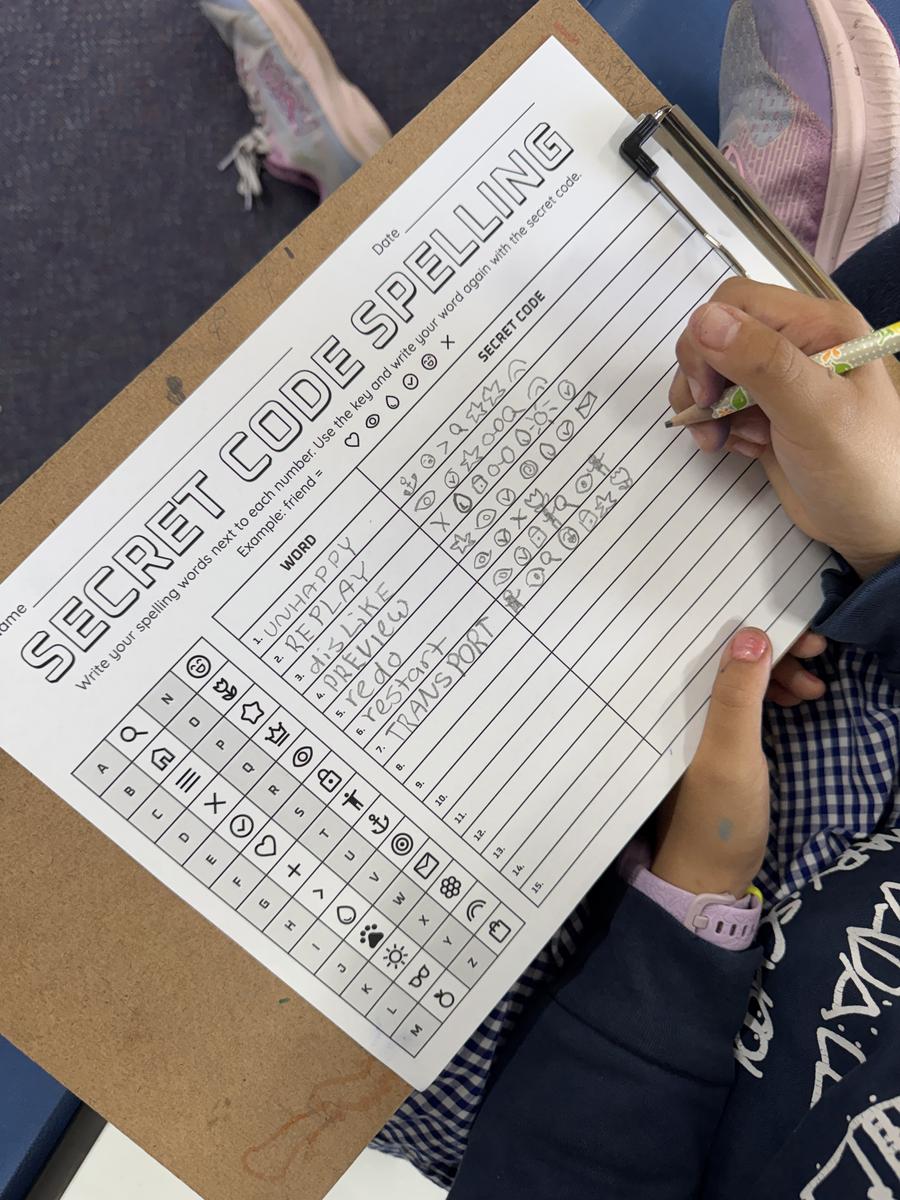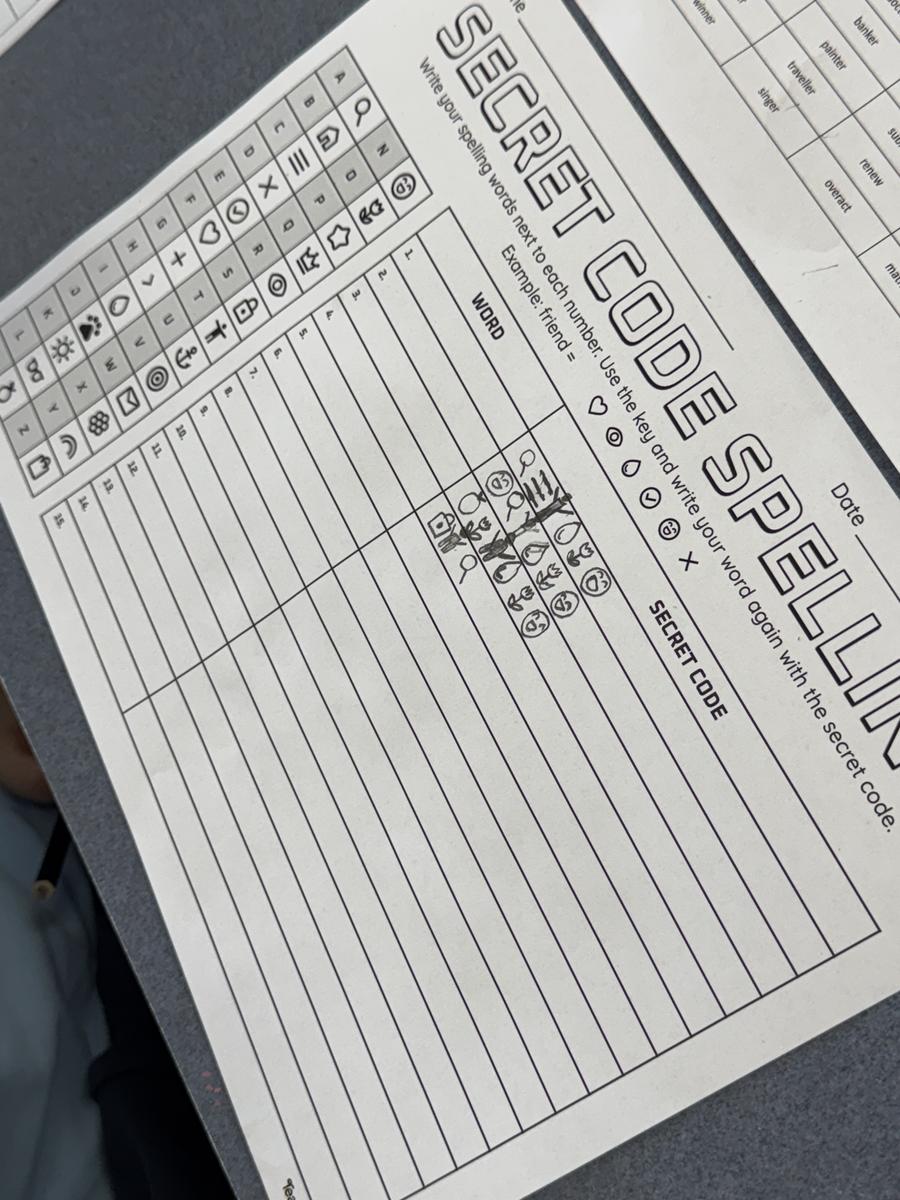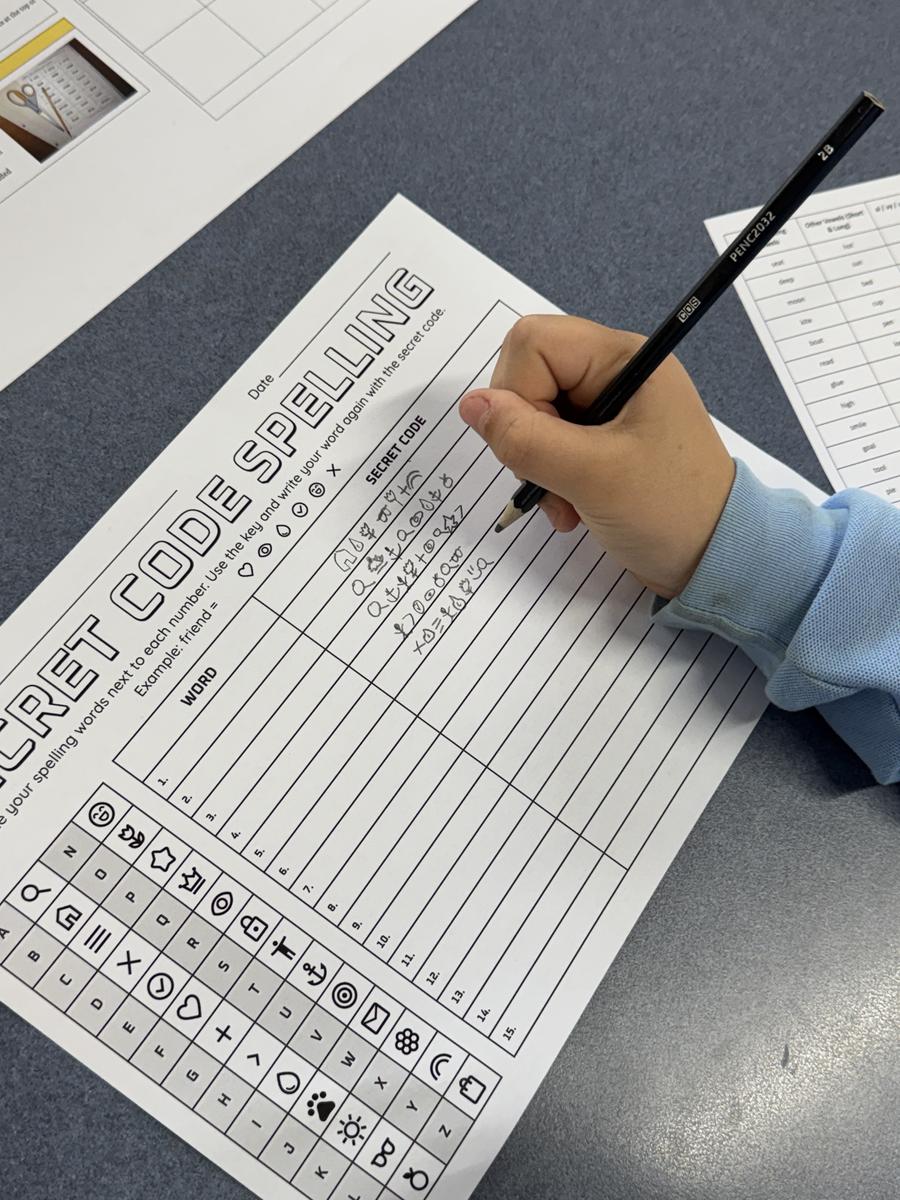Year 3/4 Bulletin
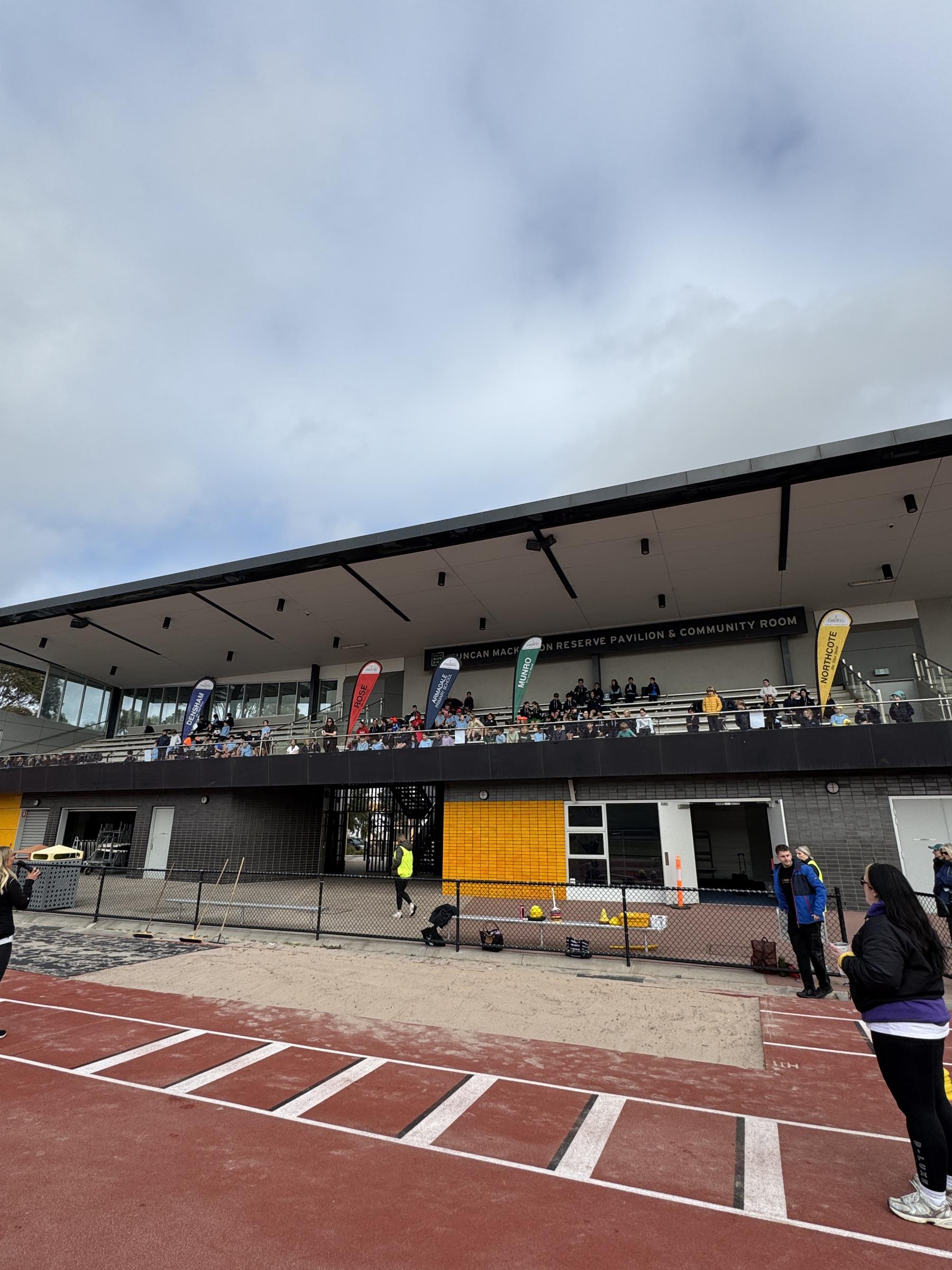
Spelling Bulletin - Grade ¾
Learning Intention: To identify the rule or pattern within words.
Whole (Modelled / Shared Session)
This week in spelling, our focus was on guided discovery through phonics — exploring how suffixes can change the meaning of base words. Students began seated on the floor, listening carefully as the teacher said a series of words aloud: dancer, dreamer, driver, farmer, swimmer, writer, sailor, traitor, tutor, actor, beggar, and burglar.
As each word was spoken, students wrote down what they heard on their whiteboards, using their existing phonics knowledge to spell the words as accurately as possible. Once everyone had recorded their attempts, students held up their boards to share and compare. The teacher then drew attention to the different endings that appeared — for example, noticing that some students had written sailor with –er instead of –or. This opened a discussion about why words that sound similar might use different endings.
The teacher then recorded the correct spellings on the board in a vertical list and guided students to look closely for patterns by asking:
- What do you notice at the end of each word?
- Are there two different endings being used?
- Do –er and –or words mean something similar?
Through this shared inquiry, students discovered that –er and –or are both common suffixes meaning “a person who does” or “someone connected with.” Together, they explored how this meaning fits into examples such as farmer (a person who farms), writer (a person who writes), sailor (a person who sails), and tutor (a person who teaches).
The discussion also highlighted exceptions like beggar and burglar — words that still describe a person who does something, but use –ar instead. Students co-constructed an anchor chart to summarise their learning:
- Suffixes: –er / –or | Definition: mean “a person who does.” | Examples: dancer, farmer, driver, tutor, actor, sailor | Exceptions: beggar, burglar (–ar but same meaning).
This guided discovery approach encouraged students to make connections between spelling, sound, and meaning while building a deeper understanding of word structure.
Small Groups (Targeted Spelling Practice)
At Armadale Primary School, we use assessment data to determine each child’s stage of spelling development. Students are placed in small groups with targeted word lists tailored to their specific needs. These lists are fluid and responsive — as students demonstrate understanding and growth, they move between groups and word sets to ensure continued progress.
During small group sessions, students engage in hands-on activities that strengthen their understanding of spelling patterns and meanings. Examples include:
- Creating trivia questions using their spelling words
- Designing a colourful “word rainbow” or “word staircase”
- Alphabetising their words
- Completing word sorts to find patterns
- Researching definitions to connect meaning to spelling
Allira, Richard, Cli
Year 3/4 Team

